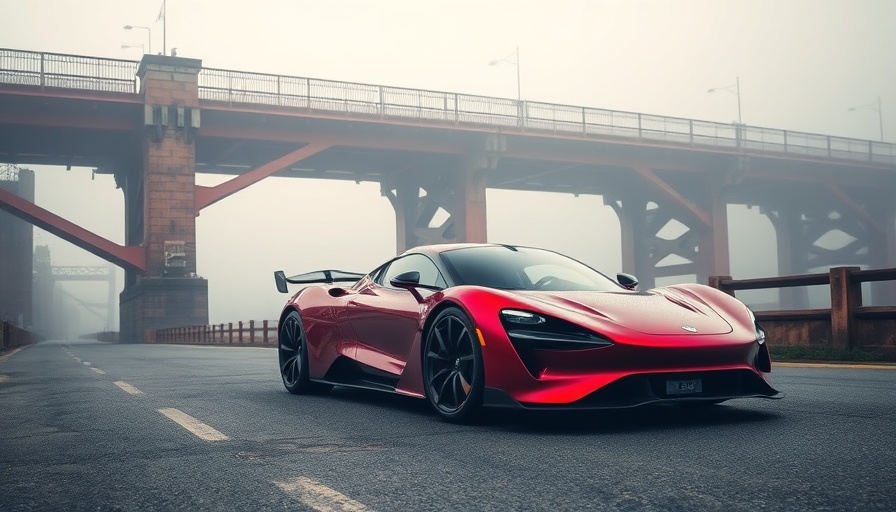
The Electric Revolution: A Spark for NASCAR?
As electric vehicles (EVs) continue to reshape transportation worldwide, the world of motorsport is not immune to this progressive shift. Recently, NASCAR drew attention by showcasing an electric race car, effectively shifting the conversation from traditional gas-powered vehicles to their electric counterparts. While it might seem that EVs ‘blow away’ NASCAR’s beloved stock cars in terms of technology, this demonstration goes beyond merely racing; it aims to inspire a dialogue on the future of auto racing as we know it.
Why This Matters to Fans and Drivers
This pivotal moment for NASCAR signifies more than an advanced vehicle; it represents a crossroad where fan passion meets technological evolution. For hobbyists and sporters alike, the introduction of EVs in racing is a double-edged sword. On one hand, the excitement surrounding EV technology could draw in a new generation of fans fascinated by innovation. On the other hand, traditional NASCAR fans may feel a sense of nostalgia for the roaring engines and high-speed thrills that have defined America’s racing culture. It’s a delicate balance, but one that can unite different fan bases under the common goal of preserving the sport's integrity while embracing progress.
Driving Change: The Environmental Angle
Focusing on electric cars in racing also opens the door to crucial discussions about sustainability and the environmental impact of motorsport. As society grapples with climate change and carbon footprints, NASCAR's willingness to innovate could take the sport down a greener path. This transition meets dual objectives: addressing global concerns while maintaining a competitive edge. Such a commitment to sustainability can further amplify the sport's relevance, fostering relationships with eco-conscious fans and advocates alike.
Looking Ahead: What’s Next for NASCAR and EVs?
The prospect of integrating EV technologies into NASCAR prompts reflective thinking on the sport’s future direction. Will we eventually see a fully electric NASCAR series that ignites fierce competitions akin to traditional racing? Experts speculate that if innovations in battery technology can keep pace with the demands of a racetrack, then all-electric races may not be far off. This speculation draws both excitement and trepidation from fans, making it a significant talking point across forums and gatherings.
Counterpoints: Is the Traditional Race Car on Its Way Out?
However, not everyone is convinced that electrifying NASCAR is the way to go. Critics argue that electric racing lacks the raw power and experience that traditional vehicles deliver in a race. The distinct roar of a combustion engine versus the quieter whir of an electric motor creates divergent fan experiences. For now, the discussion surrounding EVs is less about replacing NASCAR’s stock cars and more about enhancing the narrative of racing as a whole, combining different technologies and experiences for a richer event.
Building Community Around Change
As the electric car demo on the NASCAR track makes headlines, it paves the way for engaging conversations at local racing events and social media platforms. Fans have an opportunity to share their preferences, voice their concerns, and get excited about what’s in store. As hobbyists, it’s essential to cultivate a passion that not only celebrates the past but is also open to the future. This electric push gives stakeholders a reason to collaborate, innovate, and unite fans around shared interests, regardless of their allegiance to traditional or electric racing.
A Call to Action: What Can Fans Do?
The future of NASCAR isn’t determined solely by its leaders; it's a community-driven effort. Each fan can play a role by participating in discussions, attending events featuring both gas and electric vehicles, and educating themselves about the impact of both technologies on the sport. Embracing the electric innovation doesn’t mean forgetting the legacy of traditional racing; it means augmenting it into a newer, brighter future. Join the conversation, attend races, and keep pushing for the changes that cater to both nostalgia and modernization in this beloved sport.
 Add Row
Add Row  Add
Add 




Write A Comment